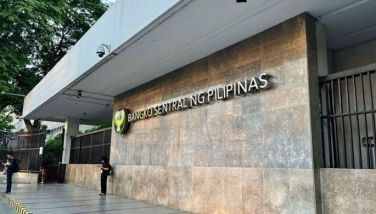The protection of oceans, a global common for the Philippines and the world
The central importance of oceans is a daily reality in the Philippines: as a major regulator of environmental balances, especially when it comes to climatic events, as a provider of natural resources and as a major channel for trade. Today, natural maritime ecosystems are challenged by human activities and often disrupted because of pollution or over-exploitation. For France too, especially through its overseas territories in the Indo-Pacific, the oceans have a paramount importance for our populations. However, the nature of oceans is that of a global common: they know no boundaries, and as such will be best protected through multilateral cooperation platforms. This is reflected in the denomination of several major events that were organized this year.
In February this year, France organized in the city of Brest the One Ocean Summit, a three-day event aimed at taking concrete action to address these challenges, through the sharing of initiatives and solutions of various stakeholders. At the end of the summit, a hundred countries stated their determination to preserve the oceans by contributing to a series of commitments, including the protection of biodiversity and ocean resources, the regulation of shipping industry or the end of plastic pollution of the oceans. The creation of protected areas in particular, including maritime areas, has been addressed through the High Ambition Coalition for Nature and People, launched in January by France and Costa Rica. Now, 84 countries aim to protect 30 percent of the world’s land and sea by 2030. I am extremely happy to hear that the Philippines is considering joining this initiative. To this day, two thirds of the ocean cannot enjoy marine protected area status.
For this reason, the 27 Member-States of the European Union, joined by 16 third countries, have launched the “High Ambition Coalition on Biodiversity Beyond National Jurisdiction” (BBNJ). It aims at concluding an effective, global agreement on the sustainable use of the high seas and the protection of their biodiversity. Sadly, illegal, unreported and unregulated (IUU) fishing is a concrete issue for many fisher folks here in the Philippines. It accounts for almost a fifth of global catches, undermines food security and often involves very poor safety and working conditions for fishers. Undoubtedly, it is another area of shared concern.
In Brest, France and Colombia also launched a global coalition for Blue carbon, which will bring together national and multilateral actors in the field, to contribute to financing the restoration of coastal ecosystems. The oceans play a crucial role in climate change mitigation and adaptation, and some ecosystems such as mangroves or seagrass beds can absorb and store large quantities of carbon. This capacity now needs to be highlighted to speed up projects to protect and restore such ecosystems, to enable genuine “blue carbon offsetting.”
In April, I attended the Our Oceans Conferences in Palau to discuss similar issues. One Ocean, Our Oceans: these are shared issues, for which we need everyone on board. For this reason, Global Commons are one of the four pillars of the French Indo-Pacific Strategy. In June at the United Nations One Ocean conference in Lisbon, a promising project from the Philippines was presented thanks to the work of Sulubaai French-Philippine NGO in Palawan. Sulubaai has been working with great success towards the restoration of coral reefs in Shark Fin Bay. It is also actively rebuilding fish stocks and marine protected areas in the region, helping to strengthen food security for local communities and training researchers to expand this program. We could say today: “Teach a man to replenish fish stocks, and you feed him for a lifetime.” The 25th of November, I will have the honor of inaugurating the Sulubaai Ecological Restoration Center in Palawan with Senator Loren Legarda.
500,000 euros have been dedicated to Sulubaai’s Sea Academy program by the French Facility for Global Environment (FFEM), administered by French Agency for Development, AFD, through the French Facility for Global Environment (FFEM). This Facility also invested 1.5-million euros to support the strengthening of coastal resilience to climate events.
As a long-standing shareholder, France is supporting, through its support to the Asian Development Bank (ADB), actions in favor of ocean’s protection, such as, France to the Blue South-East Asia Finance Hub launched in November 2021, whose objective is to originate, develop and mainstream blue projects but also strengthen regulatory environments. I positively note that in September 2021, ADB emitted its first ever Blue Bonds in order to raise additional resources to fill the gap between financing needs and available resources.
We need to continue working together towards the protection of the oceans and maritime biodiversity.
* * *
Michele Boccoz is the Ambassador of France to the Philippines.
- Latest
- Trending


























